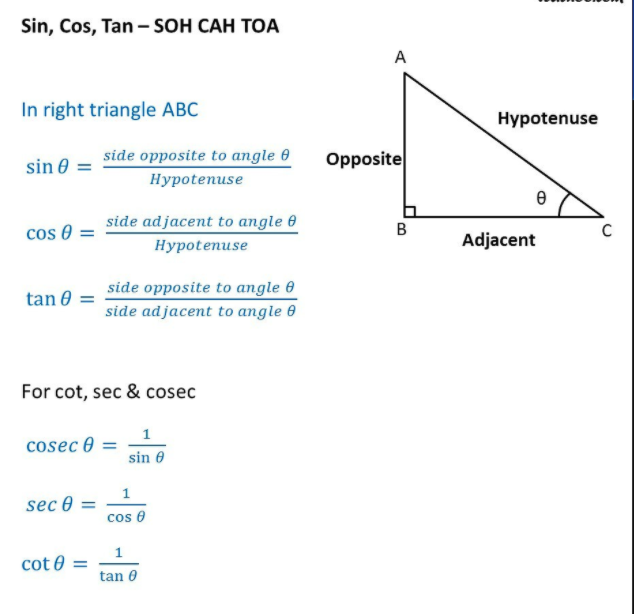Sin Cos Tan
Trigonometry: Sin, Cos, Tan Study concepts, example questions & explanations for Trigonometry. CREATE AN ACCOUNT Create Tests & Flashcards. Home Embed All Trigonometry Resources. 6 Diagnostic Tests 155 Practice Tests Question of the Day Flashcards Learn. Sin Cos Tan Values In trigonometry, sin cos and tan values are the primary functions we consider while solving trigonometric problems. These trigonometry values are used to measure the angles and sides of a right-angle triangle. Apart from sine, cosine and tangent values, the other three major values are cotangent, secant and cosecant. Simplify: tan^2(x) cos^2(x)+ cot^2(x) sin^2(x) trigonometric-simplification-calculator. Related Symbolab blog posts. Spinning The Unit Circle (Evaluating Trig.
A sine wave made by a circle:
A sine wave produced naturally by a bouncing spring:
Plot of Sine
The Sine Function has this beautiful up-down curve (which repeats every 2π radians, or 360°).
It starts at 0, heads up to 1 by π/2 radians (90°) and then heads down to −1.
Plot of Cosine
Cosine is just like Sine, but it starts at 1 and heads down until π radians (180°) and then heads up again.
Plot of Sine and Cosine
In fact Sine and Cosine are like good friends: they follow each other, exactly π/2 radians (90°) apart.
Plot of the Tangent Function
The Tangent function has a completely different shape ... it goes between negative and positive Infinity, crossing through 0, and at every π radians (180°), as shown on this plot.
At π/2 radians (90°), and at −π/2 (−90°), 3π/2 (270°), etc, the function is officially undefined, because it could be positive Infinity or negative Infinity.
Inverse Sine, Cosine and Tangent
Sin Cos Tan Meme
The Inverse Sine, Cosine and Tangent graphs are:
Inverse Sine
Tan Cos Csc
Inverse Cosine
Sin Cos Tan Calculator Right Triangle
Inverse Tangent
Sin Cos Tan Def
Mirror Images
Here is Cosine and Inverse Cosine plotted on the same graph:
Cosine and Inverse Cosine
They are mirror images (about the diagonal)!
Sin Cos Tan

Sin Cos Tan Table
The same is true for Sine and Inverse Sine and for Tangent and Inverse Tangent. Can you see this in the graphs above?